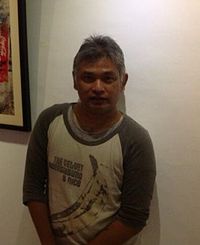
Teguh Karya was an Indonesian film director. Starting his entertainment career in theatre, he made his directorial debut in 1971 with Wadjah Seorang Laki-Laki in which he also wrote the screenplay. He later directed numerous critically acclaimed films, including Cinta Pertama, Badai Pasti Berlalu, and November 1828. In 2001, Karya died from complications from a 1998 stroke.

Astaman also known as Tirtosari, was an Indonesian actor active from the 1910s until the mid-1970s. He was a leading actor in the influential theatre company Dardanella and, after entering the film industry with 1940s Kartinah, acted in 43 films.
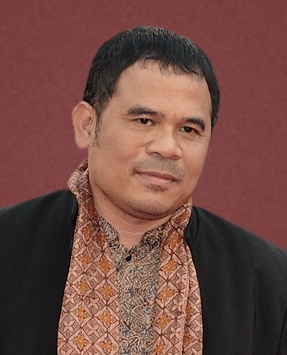
The Citra Award for Best Director is an award given at the annual Indonesian Film Festival (FFI) to Indonesian film directors in recognition for their achievement in the previous year. The Citra Awards, described by Screen International as "Indonesia's equivalent to the Oscars", are the country's most prestigious film awards and are intended to recognize achievements in films as well as to draw public interest to the film industry.
Herwin Novianto is an Indonesian film director who won the Citra Award for Best Director at the 2012 Indonesian Film Festival for his drama Tanah Surga... Katanya . He later directed Aisyah, biarkan kami bersaudara in 2016 which starred Laudya Cynthia Bella.

Lilik Sudjio was an Indonesian actor turned film director who won the Citra Award for Best Director in 1955 for his film Tarmina. He was involved in 74 feature film productions since his debut in Fred Young's Saputangan in 1949.
Nico Pelamonia was an Indonesian actor turned film director who won the Citra Award for Best Director in 1976 for his film Semalam di Malaysia. He has been involved in 33 feature film productions since his debut in Fred Young's Dibalik Awan in 1963.
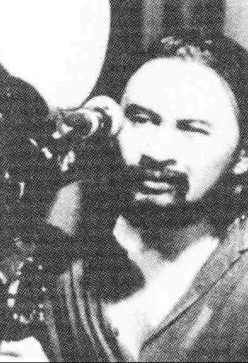
H Lembu Amiluhur Priyawardhana Priyono, generally referred to as Ami Prijono was an Indonesian film director and actor. He was married to the feminist writer Julia Suryakusuma.
The Citra Award for Best Actress is an award given at the Indonesian Film Festival (FFI) to Indonesian actresses for their achievements in leading roles. The Citra Awards, described by Screen International as "Indonesia's equivalent to the Oscars", are the country's most prestigious film awards and are intended to recognize achievements in films as well as to draw public interest to the film industry.

Miecke Marie De Rijder was an Indonesian actress, model, and politician who won three Citra Awards. She was crowned the best female antagonist in Indonesian film industry along with Suzzanna and Ruth Pelupessy. Wijaya began her career as a teenager and soared to popularity by partaking a role in Usmar Ismail's commercially successful Tiga Dara, her name became increasingly popular after starring in the soap opera Losmen in 1987.

The Citra Award for Best Actor is an award given at the Indonesian Film Festival (FFI) to Indonesian actors for their achievements in leading roles. The Citra Awards, described by Screen International as "Indonesia's equivalent to the Oscars", are the country's most prestigious film awards and are intended to recognize achievements in films as well as to draw public interest to the film industry.
Kanjeng Raden Tumenggung Irwan Susetyo Pakusadewo or better known as Tio Pakusadewo is an Indonesian actor of Javanese descent.
The Citra Award for Best Supporting Actress is an award given at the Indonesian Film Festival (FFI) to Indonesian actresses for their achievements in a supporting role. The Citra Awards, described by Screen International as "Indonesia's equivalent to the Oscars", are the country's most prestigious film awards and are intended to recognize achievements in films as well as to draw public interest to the film industry.
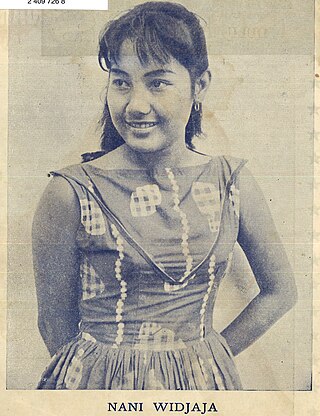
Nani Widjaja was an Indonesian actress and model who won two Citra Awards for Best Supporting Actress. She was best known for her role in television Bajaj Bajuri. She was the part of Classical Indonesian Cinema.
Rineke Antoinette Hassim, best known by her stage name Rina Hasyim, is an Indonesian actress and model who has won both a Citra Award for Best Leading Actress and Citra Award for Best Supporting Actress.

Niniek L. Karim is an Indonesian actress who has won two Citra Awards for Best Supporting Actress.
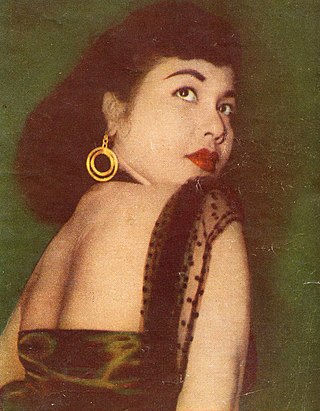
Dhalia was an Indonesian actress active for over fifty years. She was nominated for three Citra Awards at the Indonesian Film Festival, winning one.

Rara Patma Dewi Tjitrohadiseikusumo, best known under her stage name Chitra Dewi, was an Indonesian actress and director. She was noted for her roles in Usmar Ismail's films of the 1950s, appearing in films such as Tamu Agung, Tiga Dara, and Pedjuang, although she remained active in cinema until 1993 and won a Citra Award for Best Supporting Actress at the 1979 Indonesian Film Festival for Gara-gara Isteri Muda. Dewi also had a brief stint film directing in 1971, making her one of only six Indonesian women to direct a film before 1998.

Darussalam was an Indonesian actor who appeared in more than seventy films in his forty-year career. Born in Bengkulu, he studied to be nurse before migrating to theatre during the Japanese occupation of the Dutch East Indies, marrying Netty Herawaty while with the troupe Irama Masa. The couple spent the remainder of the occupation and the ensuing revolution touring the archipelago with a number of troupes. In 1949, Darussalam and Herawaty made their feature film debut in Fred Young's Saputangan, appearing in seven further Young productions before migrating to Djamaluddin Malik's Persari. During their eight years with the company, Darussalam and Herawaty travelled to the Philippines and Singapore and found popularity among audiences, though Darussalam remained in his wife's shadow.
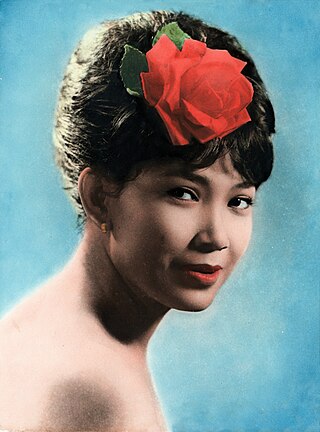
Marjolein Tambayong, better known by her stage name Rima Melati or by her nickname Lientje, was an Indonesian actress, model, and singer. She appeared in close to one hundred feature films, including works by Wim Umboh, Sjumandjaja, and Teguh Karya. She received multiple awards, including a PWI Award for Best Actress for Noda Tak Berampun, a Citra Award for Best Leading Actress for Intan Berduri, and five nominations for the Citra Award for Best Supporting Actress.
